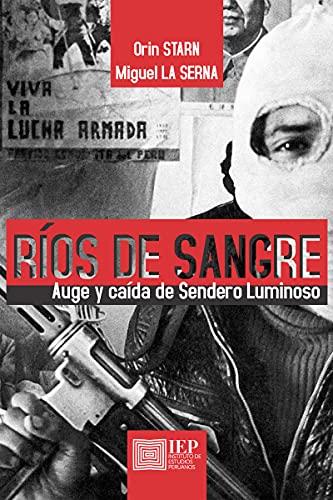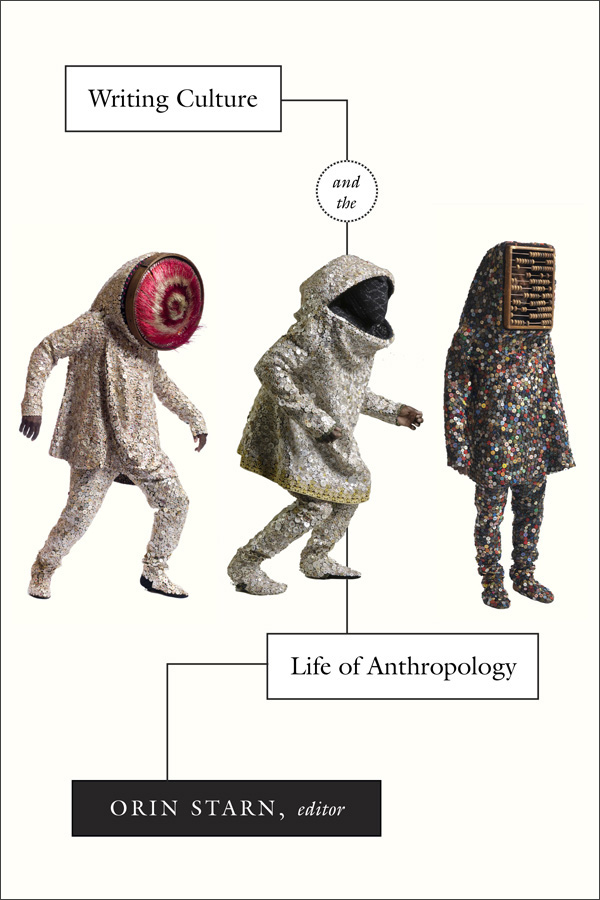The Shining Path: Love, Madness and Revolution in the Andes (W.W. Norton, 2019, with Miguel La Serna)
This book tells the story of a notorious guerrilla insurgency long shrouded in fear and secrecy. Described by a U.S. State Department cable as “cold-blooded and bestial,” Shining Path orchestrated bombings, assassinations, and massacres across the cities, countryside, and jungles of Peru in a campaign to seize power and impose a Communist government. At its helm was the professor-turned-revolutionary Abimael Guzmán, who launched his single-minded insurrection alongside two women: his charismatic young wife, Augusta La Torre, and the formidable Elena Iparraguirre, who married Guzmán soon after Augusta’s mysterious death. Their devotion to an outmoded and dogmatic brand of Communist orthodoxy, and the military’s bloody response, led to the death of nearly 70,000 Peruvians.
Based on interviews with jailed leaders and newly obtained secret police files among other sources, The Shining Path takes readers deep into the heart of the rebellion, and the lives and country it nearly destroyed. We hear the voices of the mountain villagers who organized a fierce rural resistance, and meet the irrepressible black activist María Elena Moyano and the Nobel Prize–winning novelist Mario Vargas Llosa, who each fought to end the bloodshed.

Ríos de Sangre. Auge y caída de Sendero Luminoso (Instituto de Estudios Peruanos, 2021, la traducción al español de “The Shining Path: Love, Madness, and Revolution in the Andes”, con Migue La Serna)

Writing Culture and the Life of Anthropology (Duke University Press, 2015)
Using the influential and field-changing Writing Culture as a point of departure, the thirteen essays in Writing Culture and the Life of Anthropology address anthropology’s past, present and future. The contributors, all leading figures in anthropology today, reflect back on the “writing culture” movement of the 1980s, consider its influences on ethnographic research and writing, and debate what counts as ethnography in a post-Writing Culture era. They address questions of ethnographic method, new forms the presentation of research might take, and the anthropologist’s role. Exploring themes such as late-industrialism, precarity, violence, science and technology, globalization, and the non-human world, this book is essential reading for those looking to understand the current state of anthropology and its possibilities going forward
Contributors: Anne Allison, James Clifford, Michael M.J. Fischer, Kim Fortun, Richard Handler, John L. Jackson, Jr., George E. Marcus, Charles Piot, Hugh Raffles, Danilyn Rutherford, Orin Starn, Kathleen Stewart, Michael Taussig, Kamala Visweswaran
Click here to read Orin Starn’s introductory essay.
*********************************************************************************
The Passion of Tiger Woods: An Anthropologist Reports on Golf, Race, and Celebrity Scandal (Duke University Press, 2011)
Perhaps the best golfer ever, Tiger Woods rocketed to the top of a once whites-only sport. Endorsements made him a global brand and the world’s richest athlete. The child of a multiracial marriage, Woods and his blond, blue-eyed wife, Elin Nordegren, seemed to represent a new postracial America. Then, in late 2009, Woods became embroiled in a sex scandal that made headlines worldwide. In this concise yet far-reaching analysis, Orin Starn brings an anthropologist’s perspective to bear on Tigergate. He explores our modern media obsession with celebrity scandals and their tawdry ritualized drama, yet he offers much more than the usual banal moralizing about the rich and famous. Starn explains how Tiger’s travails and the culture of golf reflect broader American anxieties—about race and sex, scapegoating and betrayal, and the role of the sports hero.
“Orin Starn’s excellent examination of Tiger Woods offers deep insight, original thinking, and valuable new perspectives. This book tells us a lot about Tiger, but even more about ourselves.” — Jaime Diaz, senior writer, Golf Digest
“An in-depth study of the sport’s exclusionary reputation, the celebrity industry, racial stereotypes, marketing and media avarice, Starn’s treatment of the Woods scandal delivers layers of perspective to what, on the surface, was just another cheap tabloid feeding frenzy.” — John Jeansonne, Newsday
Click here for more information
Click here to watch trailer for the book
**************************************************************************************
Ishi’s Brain: In Search of America’s Last “Wild” Indian (W.W. Norton, 2004)
Ishi’s Brain chronicles the search for the truth about the life and death of a legendary Native American. Captured in the hills of northern California in 1911, Ishi, the last survivor of the Yahi tribe, was brought to San Francisco by the famous anthropologist Alfred Kroeber, and became a living museum display until his death five years later. Anthropologist Orin Starn recounts his search to locate Ishi’s brain in hopes of finally repatriating his remains to Yahi country. The trail to Ishi’s brain leads Starn through the painful history of the extermination of the Indians, the strange and sometimes scandalous history of anthropology, and the changing, mixed-up world of Native California today.
“An intimate, provocative, even cathartic account of Ishi’s long journey home” — Los Angeles Times
“Told like a detective story…a compelling, and, at times, agonizing story of human fallibility” — San Francisco Chronicle, Best Books of 2004
Click here to order and for more information
************************************************************************************
Nightwatch: The Politics of Protest in the Andes (Duke University Press, 1999)
Organized in the mid-1970s as a means of communal protection against livestock rustling and general thievery in Peru’s rugged northern mountains, the rondas campesinas(peasants who make the rounds) grew into an entire system of peasant justice and one of the most significant Andean social movements of the late twentieth century. Nightwatch is the first full-length ethnography and the only study in English to examine this grassroots agrarian social movement, which became a rallying point for rural pride.
Drawing on fieldwork conducted over the course of a decade, Orin Starn chronicles the historical conditions that led to the formation of the rondas, the social and geographical expansion of the movement, and its gradual decline in the 1990s. Throughout this anecdotal yet deeply analytical account, the author relies on interviews with ronda participants, villagers, and Peru’s regional and national leaders to explore the role of women, the involvement of nongovernmental organizations, and struggles for leadership within the rondas. Starn moves easily from global to local contexts and from the fifteenth to the twentieth century, presenting this movement in a straightforward manner that makes it accessible to both specialists and nonspecialists. An engagingly written story of village mobilization, Nightwatch is also a meditation on the nature of fieldwork, the representation of subaltern people, the relationship between resistance and power, and what it means to be politically active at the end of the century. It will appeal widely to scholars and students of anthropology, Latin American studies, cultural studies, history, subaltern studies, and those interested in the politics of social movements
Nightwatch is an elegantly crafted and important book that deserves a readership that extends far beyond the confines of Latin American anthropology and Peruvian studies. It successfully meshes a gripping narrative with an engaging discussion of key themes, ranging from the nature of fieldwork to peasant resistance and globalisation. More important, it brings to light one of the most important Latin American peasant movements of the twentieth century, until now overshadowed by the dramatic impact of the Shining Path on Peru.” — Paolo Drinot, Left History
“Orin Starn tells the story well, with compelling ethnography drawing on over a decade of fieldwork in the region, but the work is also theoretically sophisticated and historically informed. In the best tradition of political anthropology, the dialogue between detailed local knowledge and the national and international political contexts in which these developments took place is never forgotten. . . . This well-written, accessible account has plenty to engage both the Peruvianist and the more general reader.” — Penelope Harvey, Journal of the Royal Anthropological Institute
Click here to order or for more information
**********************************************************************************
The Peru Reader: History, Culture, Politics (Duke University Press, 2004, with Carlos Ivan Degregori and Robin Kirk)
The Peru Reader remains among the most popular introductions to this largest of the Anean nations. The book covers Peru from its extraordinary pre-Columbian civilizations to its citizens’ twenty-first-century struggles to achieve dignity and justice in a multicultural nation where Andean, African, Amazonian, Asian, and European traditions meet. The collection presents a vast array of essays, folklore, historical documents, poetry, songs, short stories, autobiographical accounts, and photographs. Works by contemporary Peruvian intellectuals and politicians appear alongside accounts of those whose voices are less often heard—peasants, street vendors, maids, Amazonian Indians, and African-Peruvians. Including some of the most insightful pieces of Western journalism and scholarship about Peru, the selections provide the traveler and specialist alike with a thorough introduction to the country’s astonishing past and challenging present.
“A livelier, more literate introduction to a foreign world could not be hoped for. A Peruvian trove, indeed; so much that one hardly knows where to begin dipping into its treasures.”–Alma Guillermoprieto, author of Dancing with Cuba: A Memoir of the Revolution
“The Peru Reader is a joy both for Peru specialists and those seeking an introduction to the country’s political and social development” — M. Cristina Alcalde, The Latin Americanist
Click here to order or for more information
***********************************************************************************
Indigenous Experience Today (Berg, 2009, with Marisol de la Cadena)
A century ago, the idea of indigenous people as an active force in the contemporary world was unthinkable. It was assumed that native societies everywhere would be swept away by the forward march of the West and its own peculiar brand of progress and civilization. Nothing could be further from the truth. Indigenous social movements wield new power, and groups as diverse as Australian Aborigines, Ecuadorian Quichuas, and New Zealand Maoris, have found their own distinctive and assertive ways of living in the present world. Indigenous Experience Today draws together essays by prominent scholars in anthropology and other fields examining the varied face of indigenous politics in Bolivia, Botswana, Canada, Chile, China, Indonesia, and the United States, amongst others. The study challenges the accepted notions of indigeneity and the often contentious issue of indigenous rights. Indigenous Experience Today demonstrates the transnational dynamics of contemporary indigenous culture and politics around the world.
Contributor: Amita Baviskar, Michelle Bigenho, Michael Brown, Paul Chaat-Smith, James Clifford, Marisol de la Cadena, Valerie Lambert, Francesca Merlan, Francis Nyamjoh,Anna Tsing, Mary Pratt, Louisa Schein, Linda Tuhiwai-Smith
Click here to order or for more information
************************************************************************************
Between Resistance and Revolution: Cultural Politics and Social Protest (Rutgers University Press, 1997, with Richard G. Fox)
Peasants in India hugging trees to protest logging, Brazilian feminists marching to impeach a president, Okinawan television comedians joke-starting ethnic activity. All are instances of social protest that exist in the charged territory between the cataclysmic upheaval of revolutionary war and the everyday acts of private resistance. Yet these movements “in between” resistance and revolution have remained invisible to scholars of politics, culture, and society. Leading scholars in anthropology, political science, history, sociology, and ethnomusicology examine dissent and direct action in Australia, Brazil, Germany, Colombia, India, Korea, Peru, and the United States and demonstrate the importance of looking beyond these poles of protest to the midways of mobilization.
The contributors are Nancy Abelmann, Sonia Alvarez, Arturo Escobar, Richard Fox, Faye Ginsburg, Ramachandra Guha, Ingrid Monson, Yoshinobu Ota, Orin Starn, and Nathan Stolzfus
“These are essays that make on the think. They are mostly about how ordinary people refuse to surrender to miltancies they dislike, or choose to champion militancies they prefer. Not so much for inspiration as for thoughtfulreflections, such stories help us critically to weigh the tempting polarity so often drawn between violent resistance and total capitulations.”
–Sidney Mintz, author of Sweetness and Power



